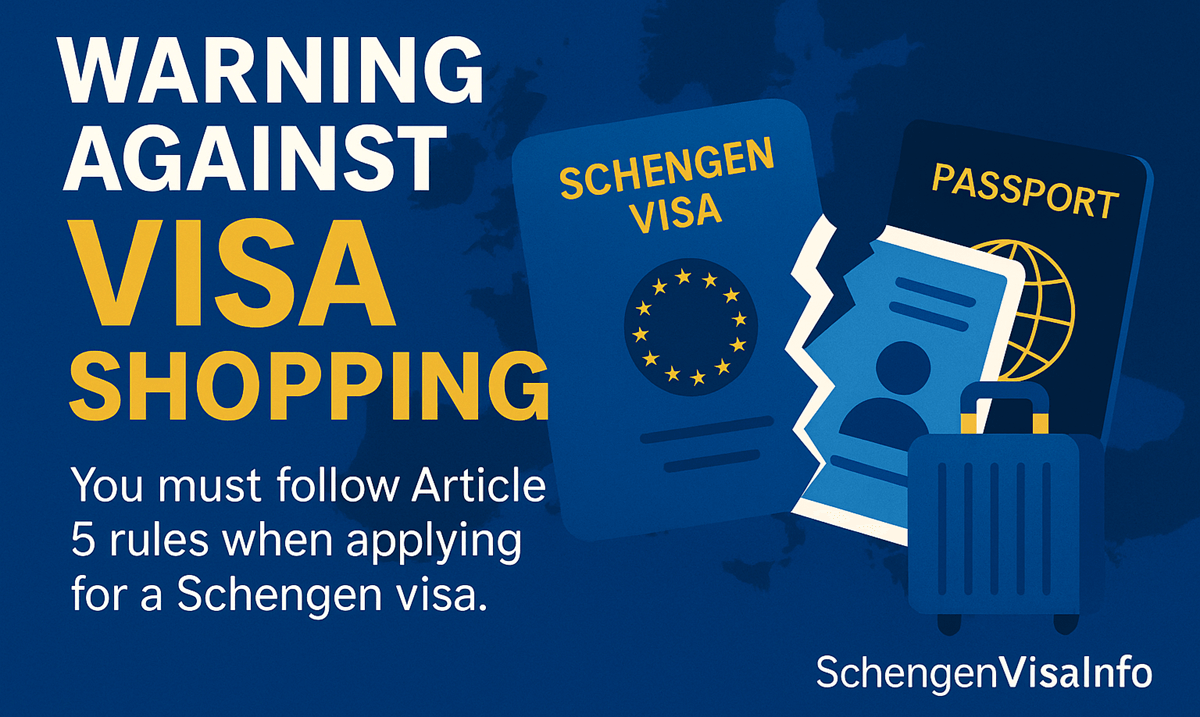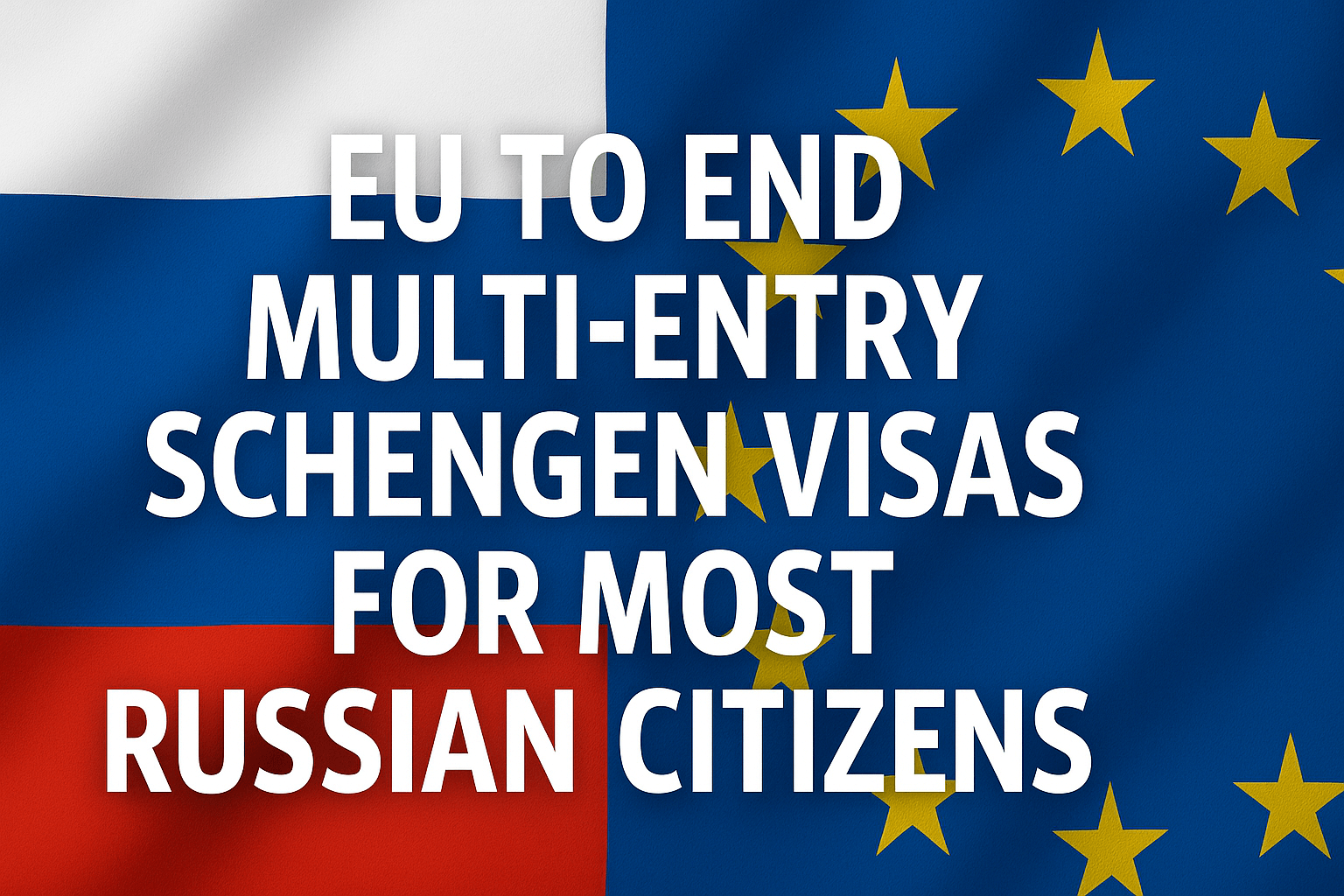BRUSSELS, Nov 7 – The European Commission issued an implementing decision to impose new restrictions for visa applications made by Russian nationals.
Effective today (November 07), the European Commission will stop issuing multiple-entry Schengen visas and will require Russian nationals to apply for a new visa for each trip to the European Union.
The Commission’s implementing decision was adopted immediately across all 29 Member States in the Schengen area; therefore, it represents a major restriction on travel to the European Union as it enters its fourth year of the conflict in Ukraine.
The decision, based on Article 24(2d) of Regulation (EC) No 810/2009 (Visa Code), followed an assessment conducted within the local Schengen cooperation in the Russian Federation.
According to SchengenVisaInfo.com, the Commission’s decision was based upon a need to engage “in close and frequent scrutiny” of visa applications to prevent potential security risks due to Russia’s war of aggression against Ukraine.
From now on, Russian nationals will no longer be able to receive multiple-entry visas. This means Russian nationals will have to apply for a new visa each time they plan to travel to the EU.
The move, reported yesterday by SchengenVisaInfo citing EU officials, comes as Brussels seeks to conduct “close and frequent scrutiny” of visa applicants to mitigate security risks posed by Russia’s war of aggression against Ukraine.
In her comments regarding the decision, European Commission Vice-President Henna Virkkunen stated that the decision addresses growing concerns about Russian activities in Europe. She emphasized that the decision was taken as a security measure and not as a political response to Russia’s aggressive behavior towards Ukraine.
Risks related to sabotage, disinformation, and drone disruptions are constantly increasing.
The official implementing decision specifically cites “Russia’s weaponisation of migration, acts of sabotage on the Member States’ territory and on the international waters of the Baltic Sea, cyber and industrial espionage threats, and potential misuse of visas for promoting propaganda supporting Russia’s war of aggression against Ukraine.”
Kaja Kallas, the EU High Representative for Foreign Affairs wrote on social media, “Traveling to the EU is a privilege, not a given.”
Limited Exceptions With Strict Requirements
The restrictions apply only to visa applications lodged at Member States’ consulates in the Russian Federation to prevent circumvention through applications at consulates in third countries.
There are limited exceptions for close family members of EU citizens and Russian residents in the EU, who may be eligible to receive multiple-entry visas that are valid for up to one year. However, these family members can only receive such visas if they have “obtained and lawfully used three visas within the previous two years.
Close family members are defined as spouses (including registered partnerships), children of the spouse under age 21, children (including adopted children), and parents of Russian citizens legally residing in EU Member States or of EU citizens.
Transport workers—including seafarers, truck and bus drivers, and members of train crews applying in their professional capacity—must have “obtained and lawfully used two visas within the previous two years” to qualify.
The implementing decision specifically identifies categories eligible for special consideration under humanitarian exceptions, including dissidents, independent journalists, human rights defenders, representatives of civil society organizations, and their close family members. In duly justified individual cases, Member States may issue multiple-entry visas valid for up to five years to these vulnerable categories.
Russian dual nationals holding EU citizenship are exempted from the new rules.
A swift response from Moscow followed the Commission’s decision. According to Maria Zakharova, a foreign ministry spokeswoman for Russia, quoted in the TASS News Agency, “Apparently, Europe does not need solvent tourists when there are migrants and draft dodgers from Ukraine.”
Russian experts have warned that the new policy will harm mostly ordinary citizens who have no connections with the Kremlin, especially since hundreds of thousands of Russians have fled to Europe to avoid persecution by their government or to avoid being drafted into the Russian military.
Visa Issuance Statistics
As reported in the European Commission’s statistics, 552,629 Schengen visas have been provided to Russian citizens in 2025. Although the numbers indicate a slight increase from the prior year (459,198), the total number of visas issued to Russian nationals remains significantly less than the 4 million visas issued in 2019 — prior to the start of Russia’s full-scale invasion of Ukraine.
Of the total number of visas issued to Russian citizens in 2024 — the majority were issued in Italy, with a total of 152,254 visas; France issued 123,890 visas, while Spain issued 111,537 visas. Compared to other Member States in Eastern Europe — Hungary, France, Spain and Italy have maintained the most permissive visa issuance policies.
Enforcement Challenges Remain
Under EU law, member states retain sovereignty over visa issuance decisions, meaning the Commission cannot impose a blanket ban on Russian visitors. The implementing decision aims to create greater consistency across national consulates, though significant variations persist.
Estonia, Latvia and Lithuania have implemented nearly complete entry bans for Russian nationals, while countries such as Hungary continue more permissive policies. Hungarian Prime Minister Viktor Orban signed a decree earlier this month extending a fast-track visa scheme to eight countries including Russia.
European Commission spokesperson Markus Lammert acknowledged the fragmented approach, noting that “in two years, with our actions, we have produced an impressive reduction in the number of visas granted, from four million to 400,000.”
The new restrictions build on the EU’s September 2022 decision to suspend a visa facilitation agreement with Russia, which lengthened processing times and raised application fees for Russian nationals seeking European travel documents.
Documented Strategy on Visas by EU Planned in December
The European Commission plans to publish a comprehensive visa strategy in December 2025 outlining how visa policy can serve as a geopolitical tool to counter Russian influence and strengthen external security across the bloc.
The strategy is expected to recommend enhanced coordination among member states and stricter screening procedures for applicants from countries deemed hostile to EU interests.
All Russian visa applications will now undergo enhanced verification procedures and heightened security controls.
The implementing decision follows intelligence assessments from several European governments warning of increased Russian sabotage and infiltration attempts in recent months.







